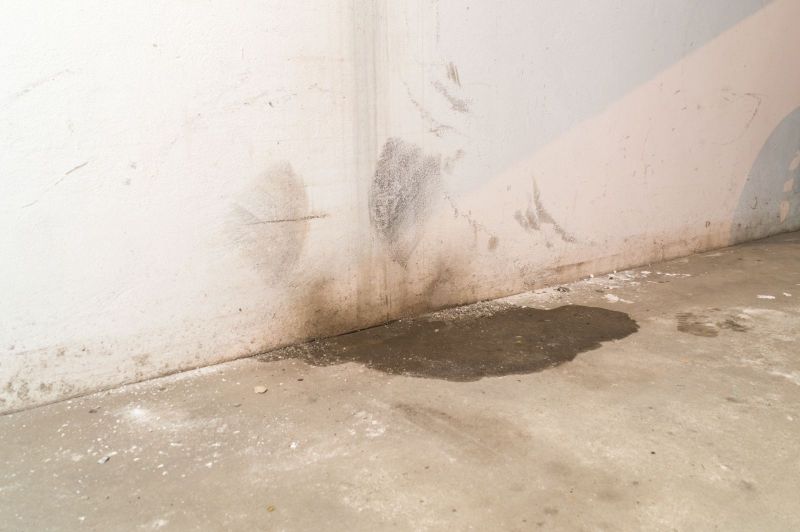Having a wet basement is often a homeowner's worst nightmare. The excess humidity and the resulting mold growth can cause dangerous health problems, break down your walls and foundation, accelerate wear and tear on appliances, and can even lead to costly structural damage to your home.
It's important to address the problem of a wet basement before it becomes an unpreventable and costly nightmare. Here are the top steps that you can take to prevent a leaky basement and keep it dry:
1. Diagnose the Problem
Your first step when you notice water in your basement should be to carefully diagnose the problem. The first thing you will need to do is find out where all the water is coming from. Look for obvious problems like cracks in the walls and watermarks that indicate a problem with water coming through the walls. A water mark up on the wall will be several feet higher than where it appears at in the floor. If your water marks are above floor level, you have an internal leak and you will need to call a professional to help you find the source of that leak.
The source could also be from outside with rain sipping into your basement through cracks or holes in your foundation. Excessive humidity is another common cause of a wet basement. If the relative humidity levels of your room are higher than what is considered normal, you could be at risk for a leaky basement.
Another source of a wet basement can be plumbing leaks. Pipes that have become corroded can burst and leak water into your basement. A major concern with this problem is that you may not notice the problem until there's enough water to cause serious damage to your home.
2. Insulate Pipes
The next step you can take to prevent a wet basement is by insulating your interior pipes. This will prevent excess humidity in your home and the resulting mold and mildew that it brings along with it. Insulating pipes is one of the best methods of preventing a wet basement. If you run an internal ventilation system, you should consider installing a dehumidifier inside too.
A standard method of insulating pipes is to use pipe insulation, which is usually PVC (PolyVinyl Chloride). This is not only available in rolls, but you can also purchase it in a roll and cut it to fit the required length of your pipes. This kind of pipe insulation is easiest to install if you are starting from scratch, so if your pipes are already installed, you may have to get creative with how you install this. You can ask for installation services from your local home improvement store.
3. Prevent Excess Humidity
When you notice a wet basement, your first step should be to minimize the amount of humidity in your home. When the moisture is contained and doesn't enter through the walls and foundation, it will not be a problem.
Here are some things that you can do to ensure that your basement doesn't become a wet mess:
- Seal all cracks and crevices with caulk. This will keep moisture out of buildings, but it won't prevent water from entering your home on its own.
- Install insulation in your basement walls. This will keep the relative humidity levels lower and prevent water from entering your home.
- Install French drains and sump pumps to remove excess water before it can build up and cause damage to your home.
4. Rain Gutters
If you have noticed that there's water building up around the base of your foundation, you may want to consider installing rain gutters. These are most effective if they lead directly out of the area where water is accumulating around your basement. Installing gutters will help prevent excess water from collecting around your basement and will also help keep your basement dry as a result.
It is important that you fix the existing problems with a wet basement to prevent problems in the future. If you're still seeing moisture build up, contact Sun-Ray Foundation Repair. Our experienced technicians can help you with your foundation issues. We'll come to your home and assess the options for a long-term solution to your wet basement.
